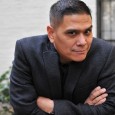This World AIDS Day, I want to discuss leadership - how we envision and enact it. Sometimes we wait for a leader. The poet Audre Lorde wrote, “I was going to die, if not sooner then later, whether or not I had ever spoken myself. My silences had not protected me. Your silence will not protect you.” For those of us living with HIV, this is a lesson we have come to understand intimately.
In my decades of HIV work, I have seen how all of us can be leaders. As people living with HIV, we need to take ownership of our roles in the HIV community; we have to step forward and use our voice. But using our voice also carries a responsibility.
How do we do that? Whom do we represent?
The United States People living with HIV Caucus (the HIV Caucus) is about representative leadership – which means people living with HIV vote in the Steering Committee members. Right now, that includes votes from all the national and several local of networks of people living with HIV. Our Steering Committee is comprised of people from Positively Trans, Positive Women’s Network-USA, Global Network of People with HIV-North America, International Community of Women-North America, the Sero Project and Thrive SS. Further, our elected Steering Committee members take part in local groups in Colorado, Missouri, New York, California, South Carolina, Texas, District of Columbia and Maryland. As we build our membership, we envision that this will grow even more diverse.
As the current Chair of the HIV Caucus, I have learned how representative leadership differs from the kind of leadership I was accustomed to in the HIV field. I have grown from being a professional manager to being a community leader. I was far more familiar with being an HIV leader based on a few models that I saw - the professional, the visionary and the diva (now, I am not an expert on leadership styles – so my framing may not be precise or reflect the current literature).
The professionals. There are those who take on official executive leadership and I have respect for them. I acknowledge the difficult role of leadership, of being “in charge” and having to be responsible for payroll, insurance, rent and raising money. All on top of making sure a Board of Directors and staff are satisfied and doing their jobs. It’s exhausting, rarely appreciated and prone to burnout.
In the context of HIV, the executive management currently faces an environment of shrinking resources, more restricted government funding and underdeveloped infrastructures.
I do not envy these folks.
The visionary leaders. These are often charismatic people who have a clear sense of where they think the community needs to be. I have worked for many of these people in HIV: they are able to bring disparate parties to the table, inspire staff and board to keep on going and move their agenda forward. These visionary leaders need to be invested in, and need people around them for the day-to-day management of operations.
I am not sure that most HIV agencies are set up to support that framework.
The divas. I have also seen a lot of outspoken people who claim leadership roles based on their own skills, ego or needs. I see these as the people who need to be at every meeting and every conference, holding court or loudly complaining about how their voice is not big enough. While these people can be provocative, I wonder at what the end goal is, what a success would look like in this framework.
I generally want to ask people who they represent, how are they held accountable to this constituency, and how they bring constituent concerns forward.
For me, accountability is an integral part of leadership.
When I walk into a room, I know who I represent. I understand my role in bringing the HIV Caucus voice forward. I also listen to my constituents and take into account how current policy, practice or representations impact them. Are these my particular problems? No, but this is what it means to be a leader.
I am tired of the leaders in the HIV field who do not see how multiple issues impact us, and so they do not speak on or prioritize these issues. Yet these hurt the HIV community: anti-Blackness; anti-immigrant backlash; FOSTA-SESTA and the ongoing criminalization of people who engage in sex work; restricting the human rights of people of trans experience; HIV criminalization laws; and increased policing and surveilling of people of color, especially Black people, people of trans experience and people who engage in sex work. I do not see many HIV organizations taking public stances on these issues.
For people who take on leadership roles, I expect more.
I am thankful that I continue to learn while being part of the HIV Caucus. We work hard to make sure that people living with HIV are represented and heard at multiple spaces throughout the year; we work with local people living with HIV networks to organize; we try our best to communicate with our membership. We struggle through difficult conversations about how various issues land on each of us and our constituents- and we carry that message forward, in every room we are in. As a mostly-volunteer group, we do not always succeed or have the best infrastructure, but we are growing.
As you grow into leadership, think about what kind of leader you want to be.








Comments
Comments